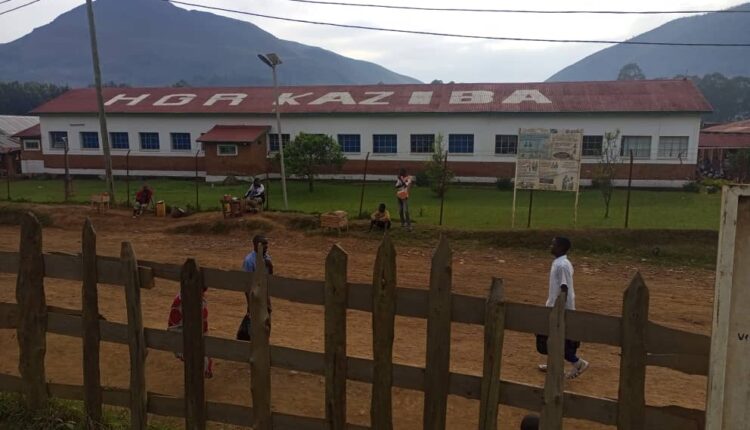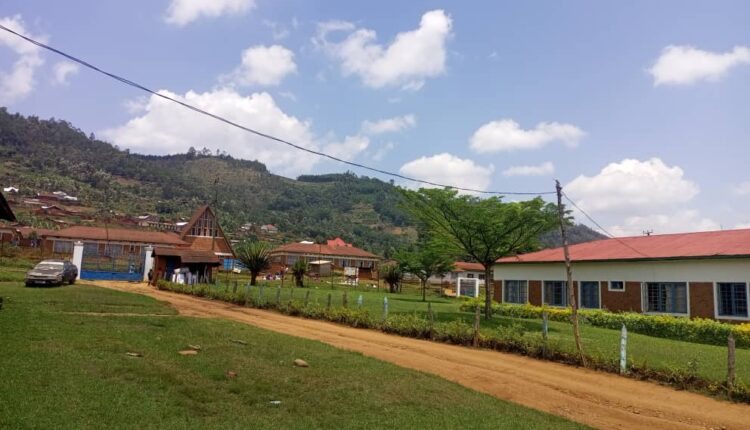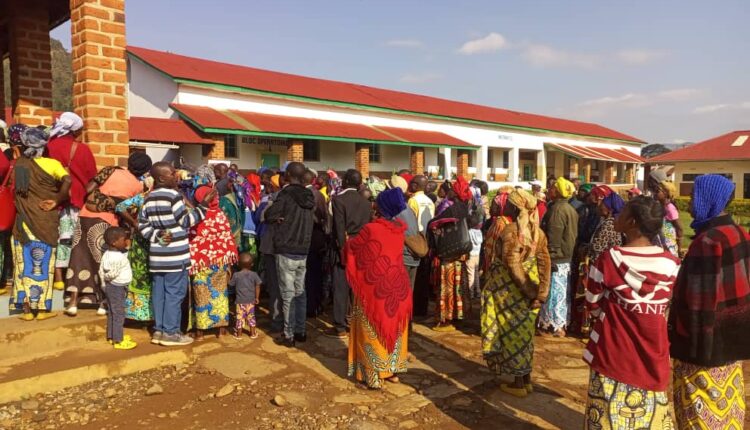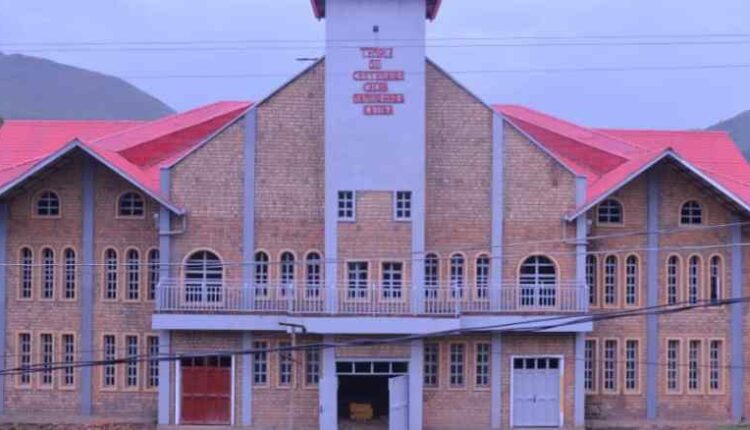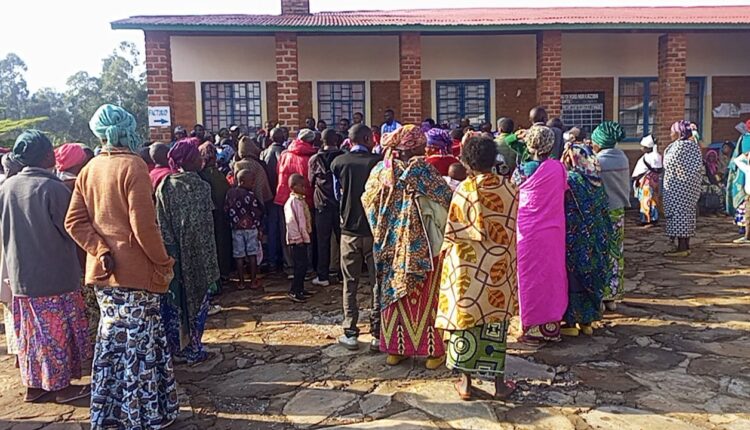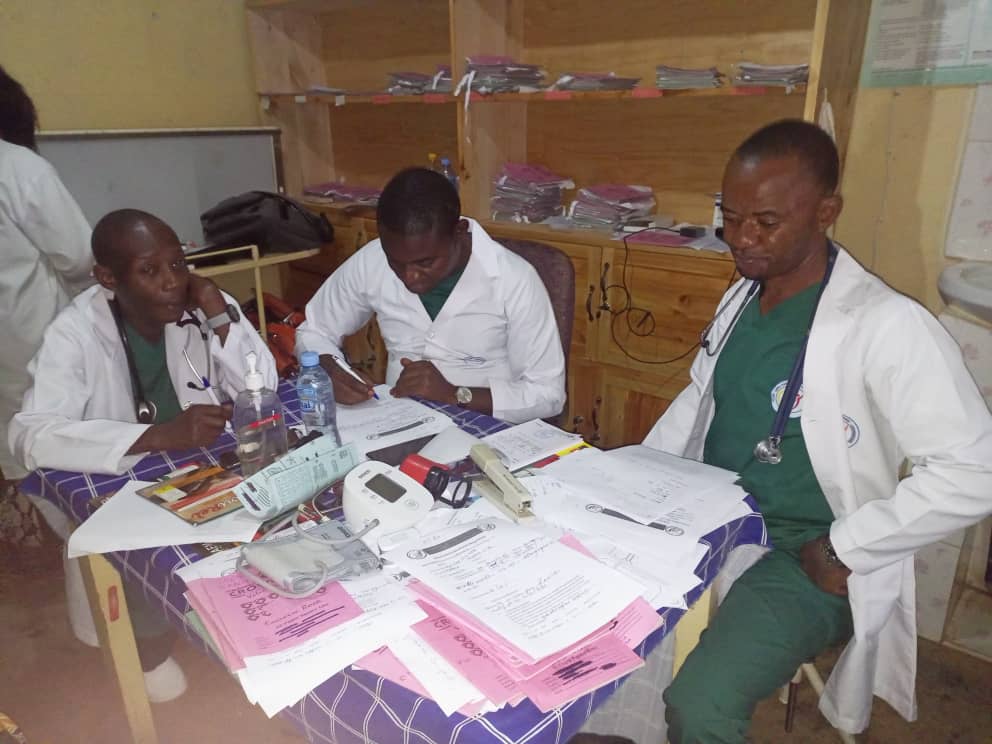
The Kaziba mission (DR Congo): an example of humanism and solidarity
Offering health care to the people of Kaziba. In memory of missionary Gunerius Tollefsen: an initiative by Norbert Katintima
The missionary impulse has always played the role of an identifying figure in the construction of a human society. This is why the first actions of missionaries in a given environment are essentially works of charity or mercy, education, health, evangelisation, building structures not only to combat inequalities of all kinds, but also to restore dignity to the person. That is why any missionary action will only be beneficial when it contributes to the promotion of a new humanism.
Day by day we discover stories of men and women who have embarked on this missionary journey, people who have looked at reality and let themselves be guided by it, going in search of people, cultivating a closeness with others from which fraternity and reciprocity are also born.
We are in Kaziba, about 60 km from the city of Bukavu (DR Congo), recognised as the cradle of the Pentecostal Church in Africa. The pioneer of this mission was the Norwegian pastor Gunerius Tollefsen. Gunerius arrived in Africa in 1922 with some Swedish missionaries to find an area in which to start missionary work. They settled in Kaziba. Here the Community of the Free Pentecostal Churches in Africa was born, which celebrated its centenary last year.
Later they built a hospital and the church in Kaziba. The work began to develop and, alongside the running of the hospital, several missionary stations were founded, congregations developed and schools were built. The work of the missionaries focused mainly on three areas
- The evangelical field: training pastors and evangelists
- Education: establishment of schools for teaching. Several schools were established in this area, including vocational and health schools
- Medical: polyclinics, health centres, delivery rooms, hospitals, etc.
Despite the presence of a large hospital in Kaziba, access to primary, specialised and quality healthcare is still limited for the population. Access to health care is far from being achieved, as health systems in Kaziba (as in other developing countries) still suffer from problems, including underutilisation of health services. Accessibility to health care financially, geographically and culturally remains difficult, which explains the relatively low rate of utilisation of health services. This is compounded by the lack of quality drugs and often the use of dubious drugs in the community and families, excessive self-medication, ignorance of warning signs, late consultations at the health centre or hospital, and poor community involvement. The health status of the population is disastrous.
It is in this context that a team of 3 medical specialists from Kinshasa and I spent a few days at the Kaziba hospital with the aim of supporting the health system by providing the population with adequate care. The activities were designed to improve the health of the population, in particular by making access to quality health care more equitable and facilitating the provision of essential medicines, awareness-raising and health education.
To date, more than 1,853 patients have been consulted, of whom 117 have undergone surgery and others have benefited from free laboratory tests, ultrasounds and X-rays, and free medicines. The medical campaign had several volunteer protagonists, thanks also to the humanism of one of Kaziba’s notables, the former governor of Bukavu, Norbert Kantintima. His generosity and humanity once again revived the missionary spirit and memory of Tollefsen.

